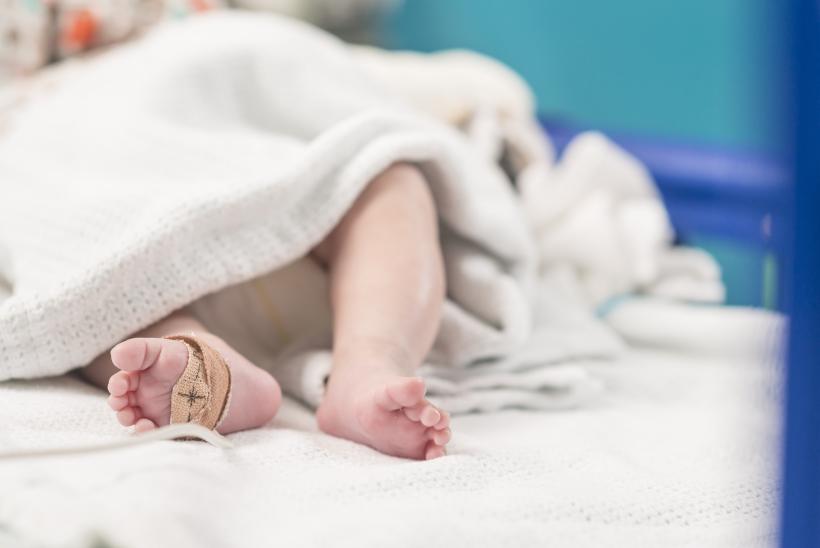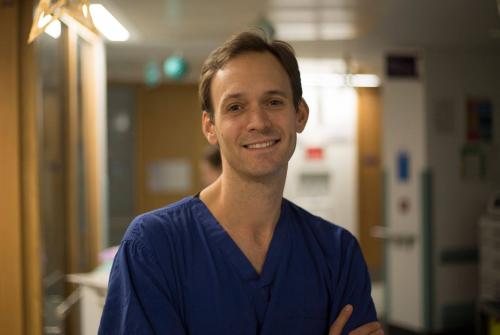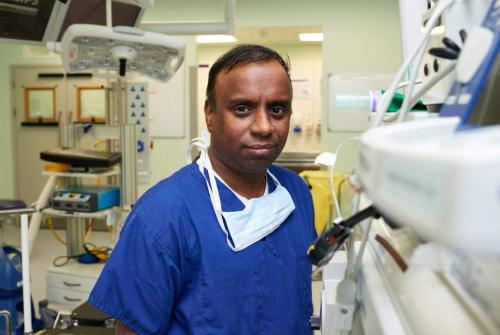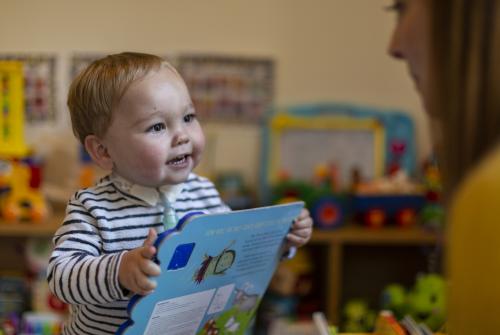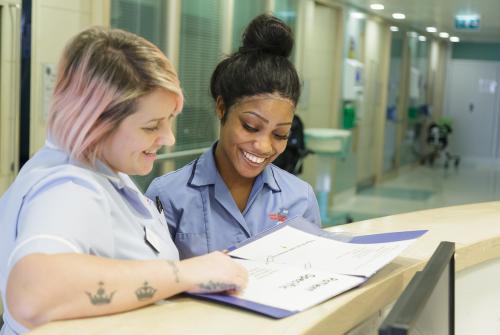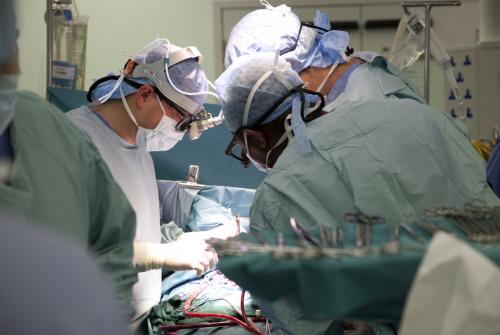Tracheal Service
Overview
The National Centre for tracheal services at Great Ormond Street Hospital (GOSH) comprises a group of leading health professionals who have been brought together to provide a range of expertise.
The tracheal team specialises in managing children with complex congenital and/or acquired tracheal defects including stenosis, malacia and other rare congenital disorders of the tracheobronchial tree. The team comprises specialists including cardiothoracic surgeons, ENT surgeons, interventional radiologists, pulmonologists, intensive care specialists, speech and language therapists and physiotherapists.
Since it was formed in 2000, the tracheal service has become one of the largest and most successful services in Europe and a world leader in the field. In 2006, the Tracheal Service received national recognition as the sole centre for the management of complex tracheal problems.
We treat children with a range of conditions including tracheal stenosis, which is a narrowing of the trachea or windpipe. It can be congenital - either long or short segment narrowing - or acquired through trauma or infection. Tracheal stenosis can also result from external compression and can be associated with the inherent weakness of its wall, called tracheomalacia.
The surgical technique the team use to treat tracheal stenosis is called slide tracheoplasty, which involves making cuts into the narrowed part of the trachea, which can sometimes be only a few millimetres wide, and sliding the two sections over each other until the part of the trachea that is normal width is reached. The GOSH team has the world’s largest experience in this type of surgery, managing close to 75% of all the complex airway repairs in the world each year.
On average, the GOSH tracheal team gets at least three new international referrals each week for opinion and/or further management. With rising numbers of referrals from across the globe, the team has established a very effective pathway for multi-institutional collaboration with telelinks and effective multi-disciplinary team meetings on Thursdays.
Outcomes
- We have produced the best outcomes internationally, with the lowest death rates for this serious condition. The overall survival of the entire cohort of tracheal children as well as those with the complex association are available for reference. The follow up on these children, after surgical reconstruction, extends to median of 288 months is also the longest available to judge the outcome of this treatment.
- Between 1995 and the end of 2021, a total of 210 slide tracheoplasty procedures have been performed at GOSH, with an overall survival of 92% and the most recent weighted survival (recent experience in the last 5 years) of 96%. There has been an increasing number of slide tracheoplasties and a significant improvement in survival over time despite increasing patient complexity.
- Other complex airway reconstructions of increasing nature is on the two groups – namely reconstruction of trachea following injury (specifically related to button battery-related injuries) and on those with failed repair of trachea-oesophageal fistula. In both these conditions, the technique used is one of vascularised pericardial patch for tracheal reconstruction, and GOSH surgical team headed by Mr Nagarajan Muthialu has revolutionised the use of this vascularised patch for trachea in many of the complex airway defects – with experience on this being close to 75 children. The overall success rate in this is 98% with stent needed in one-third of these children.
- For those children with tracheomalacia – both open and thoracoscopic aortopexy and posterior tracheopexy is offered. External splints as support to these tracheas is often used in resistant situations and work is in progress to get the most bio-effective external splints for this.
Specialist Treatment Options
- Slide tracheoplasty
- Complex airway reconstruction including surgery using vascularised pedicled pericardial flap for tracheal repair
- External splint for resistant tracheomalacia.
- Open / thoracoscopic aortopexy and posterior tracheopexy
- Hybrid stents for airways
- Use of biodegradable stents
- Complex repairs for thoracic inlet pathology including thoracic inlet widening (including those with Morquio syndrome)
- Use of OCT for diagnostic purposes in airways
Research Publications
GOSH tracheal team is very active in producing publications and conducting research.
On average, at least 6 peer-reviewed original articles are published by GOSH tracheal team each year. To read more publications, please click the pubmed link: https://www.ncbi.nlm.nih.gov/myncbi/1b5AZDLZcN-kc/bibliography/public/
Conditions we treat
- Tracheal stenosis (narrowing of the windpipe)
- Tracheo/bronchomalacia (floppy, weak, soft airway)
- Tracheal compression
- Post FETO complications
- Diseases involving the airways: Bronchogenic cysts, Tumours, Laryngeal clefts, Tracheo-oesphageal fistulae
Refer your child for treatment
Use the form below to refer your child for treatment. A member of our team will be in touch within 2 working days.
Mandatory fields
